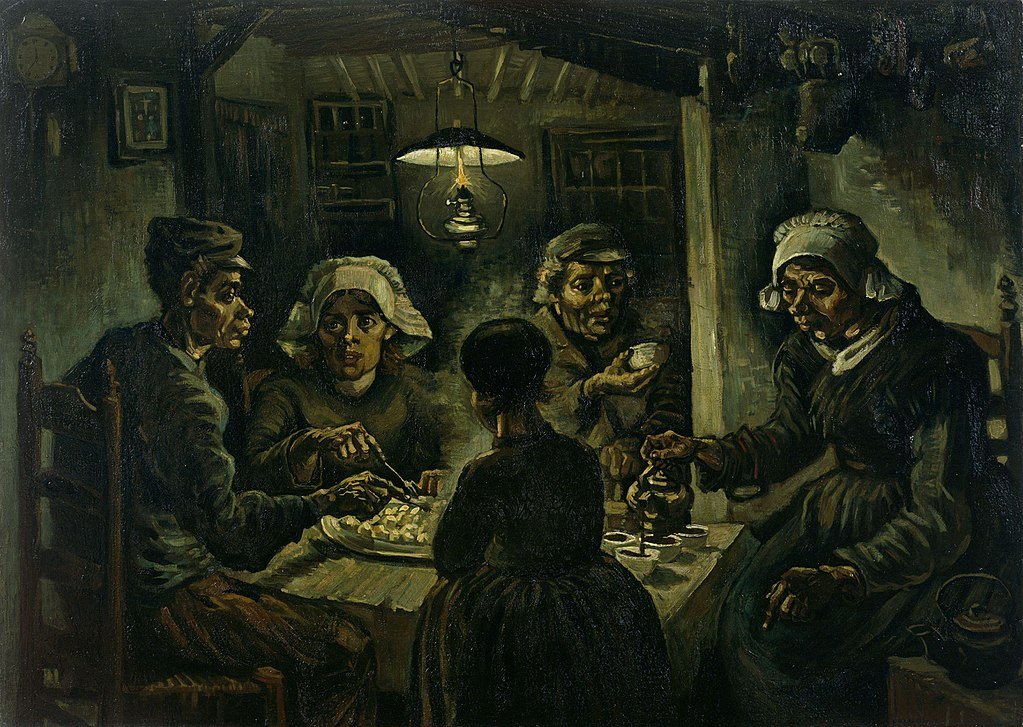A guide to fine dining, especially useful for wholesome families who wish to please our esteemed correspondent Dr. Zbigniew Janowski. It is accordingly intended for children, not kids.
1. Wash your hands before you start eating. Sing ‘God Save the Queen,’ but only the first verse, in its entirety while you do so to allow adequate time to kill germs.
2. Wait till the adults have taken their seats before you take yours. Very good children hold a chair for a senior member of the family.
3. Do not interrupt Grace, or still less attempt to eat anything before the Lord is duly thanked.
4. In a graceless household (I fear there are one or two), ask ‘Please may I start eating?’
5. When you want food to be passed to you, see if others need anything first, and if the food is some distance away, don’t grab it but ask someone near you to please pass it and quietly thank them when they do so.
6. Do not help yourself to everything from the above serving dish/plate. Remember that others need to eat too.
7. Don’t talk with your mouth full and related to this, don’t eat with your mouth open. Others do not wish to behold the contents.
8. Do not on any account put your knife in your mouth. And while you’re at it, don’t hold your knife like a pen.
9. Do not perform another function while still holding cutlery, eg scratching your head. My Grandfather, Colonel Stocker, would say ‘Don’t scratch your head with your knife’. Ideally head-scratching and nose blowing (with a linen handkerchief) are best conducted elsewhere. In which case, ask ‘Please may I leave the table?’
10. To non-vegan households: if you are eating a chop or chicken leg and your cutlery is no longer useful, lay the latter down. You can then pick up the piece of meat and chew it, Gladstone style (see below), using ONE hand to hold it. Yes, you will get grease on your fingers. In most households, the napkin should suffice. In super refined households there may be a finger bowl provided, but I am not advocating this here, as it is a potential source of danger to those less versed in etiquette. Some ill-advised people may wish to drink from it or pour its contents on to their pasta or curry: this is not recommended.
11. Use your table napkin (it is not called a serviette) where appropriate. Remember, it is not a handkerchief.
12. Don’t heat too hurriedly. Chew your food, especially your meat, thoroughly. My parents would say ‘Mr Gladstone would always chew his meat’. Mastication is the operative word. Whatever were you thinking? No, that’s rude.
13. Outside China, don’t slurp your soup or noodles.
14. Do not attempt to drink anything at the bottom of a glass with a straw, as it makes a foul noise.
15. Finer points – if you lay down your knife when it’s not needed, transfer your fork to your right hand.
16. Only say good things to your Mother about the quality of her cuisine, however humble.
17. To the grown-ups – do not put a milk bottle or carton on a table. If the beverage is either canned or bottled, decant it into a goblet. This can be cheaper glass for the more humble, not necessarily crystal. No smoking at dinner, not even between courses.
18. In conversation, the following are forbidden: sex, including organs, bodily functions, especially the bowels, abortion, intimate details of love affairs (for adolescents of all ages), most aspects of politics and religion.
19. When you have finished your main course, place the knife and fork together in the centre of the plate. Ideally invert the fork – AA Milne told Christopher Robin that if somebody fell through the ceiling and landed on the non-inverted fork, this could be somewhat painful.
20. Don’t gulp your pudding, and don’t loudly demand seconds, especially if it’s obvious that there aren’t any.
21. When you have finished, you should ask ‘Please may I leave the table’ or ‘Please may I get down’ and wait for a parental answer.
[Thoughtful elder children may then wish to make loose leaf tea or plunger coffee for their parents. Tea bags and ‘instant’ are not encouraged].
Dr Mark Stocker is a former academic and art curator who lives in New Zealand. Besides his jokes, he has 230 marginally more serious publications, many of which are on Victorian public monuments, numismatics and New Zealand art. His book When Britain Went Decimal: The Coinage of 1971 will be published by the Royal Mint in 2021.
The image shows The Potato Eaters, by Vincent van Gogh, painted 1885.
